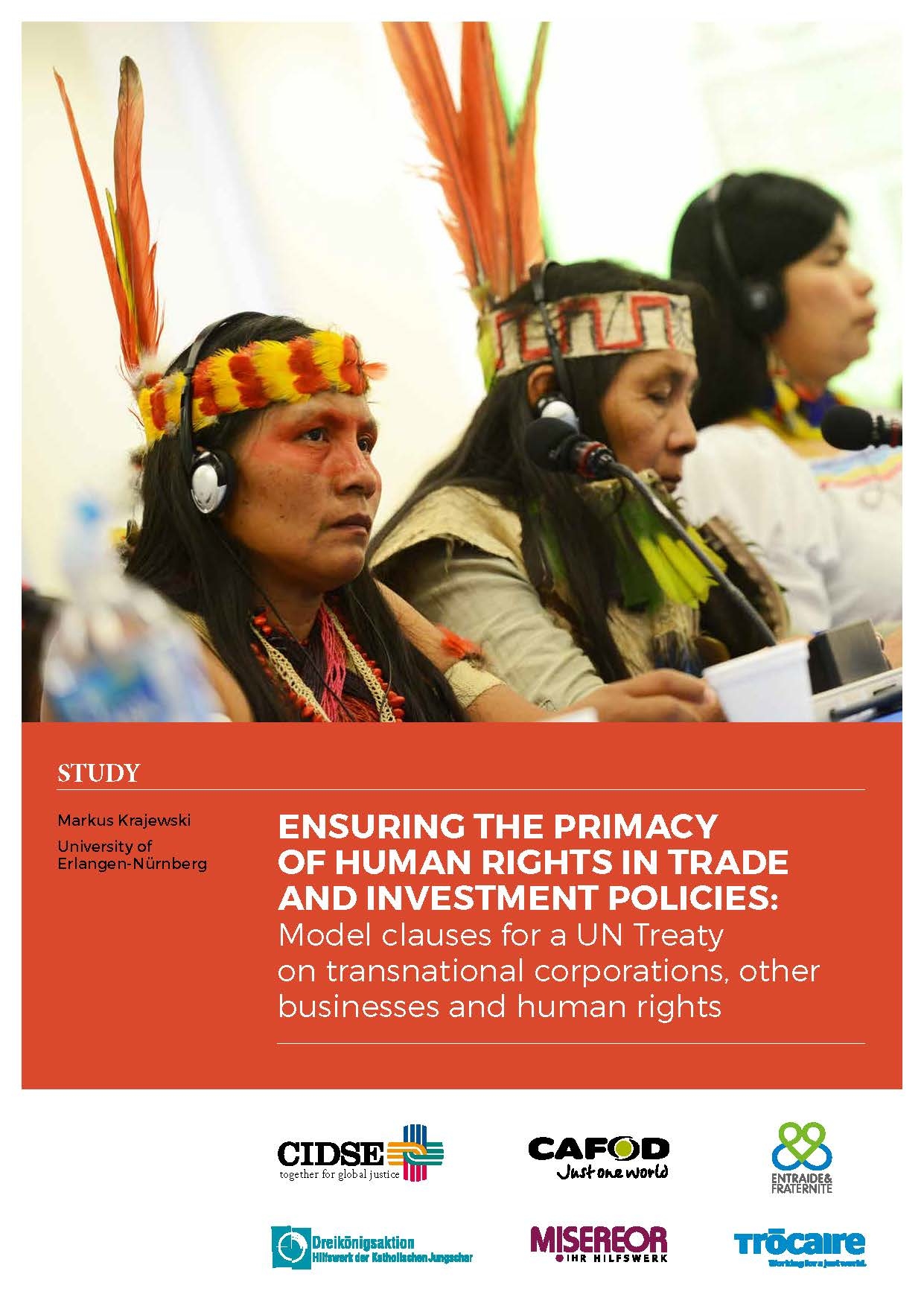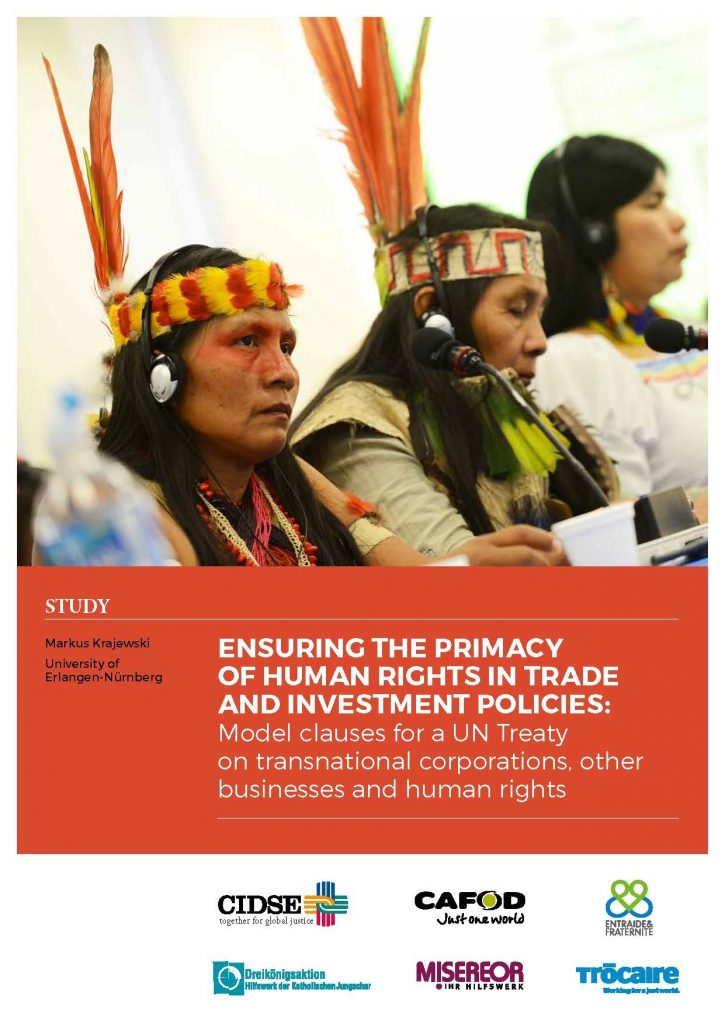
Today, CIDSE is releasing a new study by Dr. Markus Krajewski of the University of Erlangen-Nürnberg that examines how a UN Treaty on businesses and human rights could address potential conflicts between trade and human rights, and that provides model clauses that would help ensure that the protection of human rights is strengthened in the context of trade and investment agreements.
The study, entitled Ensuring the Primacy of Human Rights in Trade and Investment Policies: Model Clauses for a UN Treaty on transnational corporations, other businesses and human rights1, is being launched during a panel debate in the EU Parliament that is being hosted by the European People’s Party (EPP), and particularly Belgian MEP Claude Rolin, and co-organized by CIDSE and Belgian member organisations Entraide & Fraternité, as well as Broederlijk Delen.
The panel will provide various perspectives from the North and South on the role the EU should play with regards to “business & human rights” and particularly on the opportunities that are provided by an international legally binding instrument on transnational corporations and other business enterprises with respect to human rights (the UN Treaty).
In October 2017, historic negotiations on the UN Treaty will begin in Geneva and CIDSE and its members are encouraging world leaders to support a strong agreement that will ensure that corporate interests are not placed above human rights.
In addition to Dr. Krajewski as panelist, Mgr Álvaro Ramazzini, Bishop of Huehuetenango, Guatemala, will be present to provide examples of the impacts of extractive industries on local communities and the struggle of communities to have their rights respected. Claire Courteille, Director of ILO-Brussels, will also be featured.
“The UN Guiding Principles on Human Rights and Business are non-binding and so far, States have not fundamentally changed their treaty practices. There is currently a window of opportunity for the introduction of new legal approaches to address the relationship between human rights and investment and trade policies,” remarks Dr. Krajewski in the study.
For Mgr Ramazzini, a Treaty could positively impact communities that are experiencing the consequences of foreign corporations operating on or nearby their land. “Indigenous communities in Guatemala are witnessing increased conflict and a loss of harmony between communities, as well as deterioration of their environment due to mining operations that do not respect fundamental human rights, especially the right to free, prior and informed consent, or that do not exercise due diligence in their activities,” he says.
For more information or interviews: Kelly Di Domenico, Media and Communications Officer, didomenico@cidse.org, Tel: +32 (0)2 282 40 73, Cell: +32 (0)4 91 39 54 75.
1The study explores the potential of a future treaty to help overcome the limitations and gaps of reforms within the trade regime and contribute to ensuring the primacy of human rights law over trade and investment law, via provisions addressing three specific areas: first, regulating the relationship between human rights and trade and investment agreements; second, human rights impact assessments; and third, human rights obligations for export credit and investment guarantee schemes. You can read the Executive Summary here.

